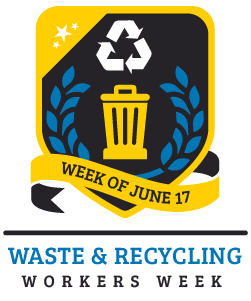From kindergarten to college, Americans are inculcated with recycling values. Whether it was your first household chore or a daily classroom activity, separating paper from plastic makes us feel like we’re saving the world in some small yet significant way. But in light of a recent New York Times article by science columnist John Tierny and Google’s new “circular economy” project, the effects of recycling seem to be in question.
Last week, the Ellen MacArthur Foundation, a nonprofit which helps large companies transition to a circular economy, announced that Google had become one of the several mega-corporations to help reduce waste by implementing a circular economy of its own. By design, a circular economy is restorative and regenerative, aiming to take materials like plastic and silicon out of landfills and eliminating wasted water, food and energy. A circular economy keeps products and their materials at their highest utility, getting systems to ultimately run on renewable energy.
“We’ll be focusing on opportunities wherever possible to eradicate waste through smart design—at our data centers, in our kitchens, on our campuses, in all we do around the world,” Google’s sustainability lead Kate Brandt told FastCompany.
Google did not return requests for comment.
“Google’s ambition to lead the way on the circular economy represents a step-change opportunity – we are thrilled to be working closely together with such a visionary, innovative and transformational partner on this journey,” MacArthur said of the partnership.
Google joins the ranks of Cisco, Unilever, Philips, Renault and Kingfisher among the many corporations labeled as the MacArthur Foundation’s “Global Partners.”
This announcement comes at a time when the issue of recycling has returned to the controversial spotlight—is it or isn’t it helping to save the Earth? (Be careful of your answer, you have kindergartners’ dreams at stake here.) But it’s hard to ignore the facts that Mr. Tierny brought up in his column this past weekend, causing controversy among the religious ritual of recyclers.
Listing off the amount of plastic and glass Americans would have to recycle in order to make a significant impact on greenhouse gases would make any avid recycler rethink their beliefs. Recycling one ton of plastic saves slightly more than one ton of carbon dioxide, while three tons of glass would give you about one ton of greenhouse benefits, according to the Times. Have we been throwing away our time on hopeless waste?
Not entirely. Mr. Tierny also points out the positive effects of recycling. Recycling one ton of paper or metal (like aluminum cans) saves about three tons of carbon dioxide—a much more promising result. But New York City still has a long way to go if it wants to achieve Mayor Bill de Blasio’s “Zero Waste” proposal.
Mr. Tierny notes the mayor’s recycling promise: By 2030, New York City will reduce its solid waste by 90 percent, no longer having to send garbage to out-of-state landfills. It’s an ambitious goal for the city—and Mr. Tierny’s sobering facts might make residents less motivated to follow through on their recycling habits.
Much to the chagrin of devout recyclers, the chief environmental benefits do not come from our personal commitment to recycling, according to Mr. Tierny. Instead, the biggest impact comes from reducing the need to manufacture (which entails less drilling, mining and logging).
Appearing on CBS This Morning on Tuesday, Mr Tierny stood by his facts, despite inevitable backlash that may come from devout recyclers around the country.
“When it comes to the bottom line, both economically and environmentally, not much has changed at all,” said Mr. Tierny, who claims that not everything we recycle is worth the effort.
So perhaps Mr. Tierny’s facts—although disappointing—have helped to pique the interest of big companies looking to delve into the circular economy. As an Internet and innovation powerhouse that already has a track record for its environmental consciousness, Google’s move to the next level of sustainability could make that big manufacturing impact—one that your recycling bin might not have the ability to do on its own.















